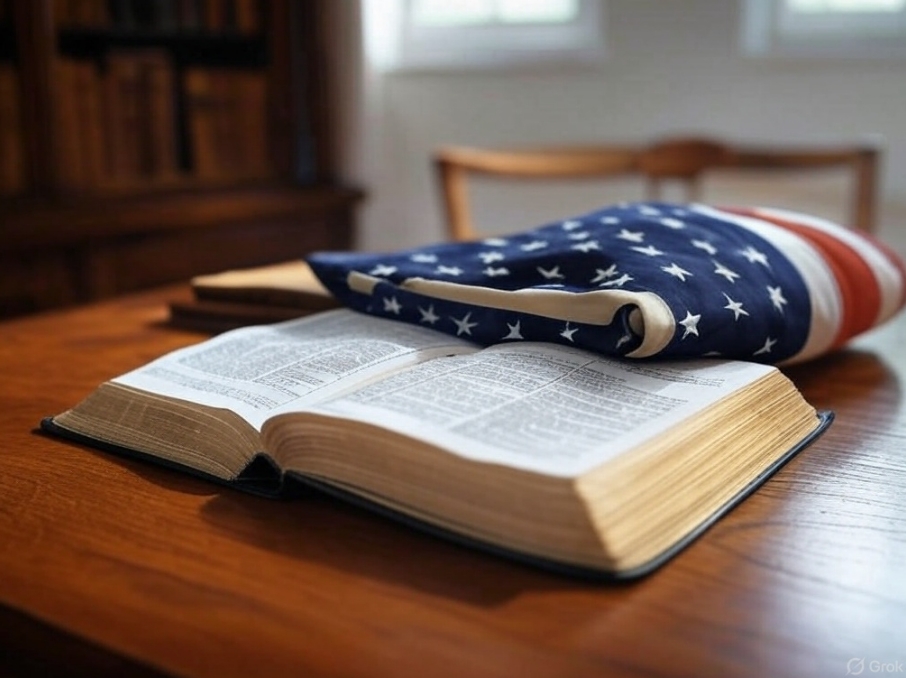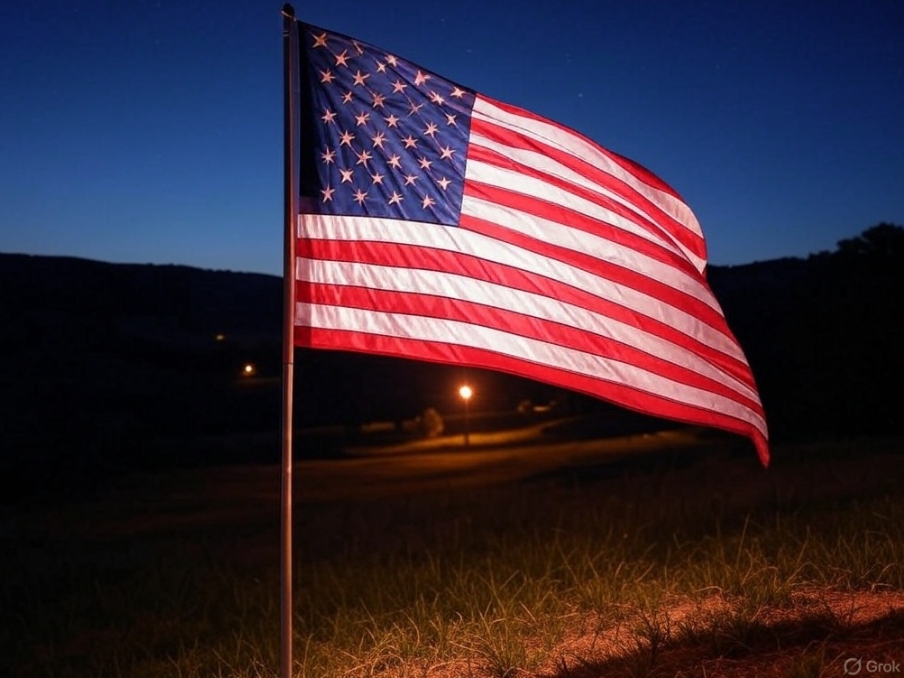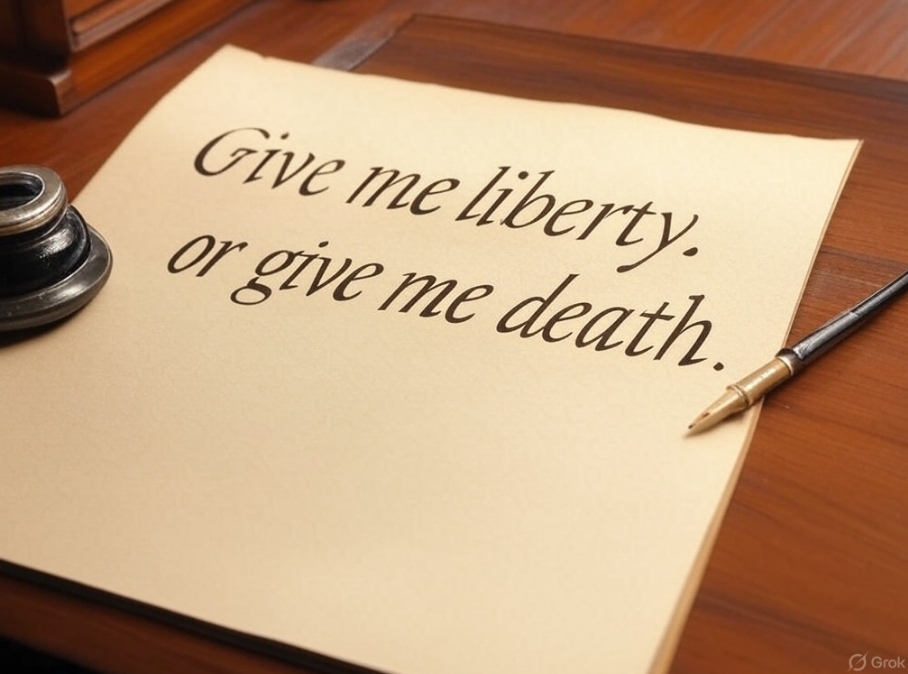Examine how believers can voice concerns and take action in politics, reflecting the influence of God in America today.
Most of us realize that times are changing quickly. Some of us believe many of the changes that we are seeing are Biblical. In believing that things are on a certain slope, do we give up? Or do we continue to voice our concerns, pray over our leaders, vote, and even take public stands as we see things arise?
Discuss article in our forums here

What are some reasons Christians chose to participate in political affairs?
Stewardship is a great place to start. We should take care of what the Lord has allowed us on loan.
Involving ourselves in politics gives us a voice on laws, on the economy, and social policies.
It’s a way to promote justice, protect the vulnerable and steward what we’ve been given responsibly.
Morality is another reason believers may choose to involve themselves in politics. Caring for the innocent unborn and the poor, are part of the calling of a believer. (Proverbs 31:8 Speak out on behalf of the voiceless, and for the rights of all who are vulnerable.)
Being salt and light is another reason some believers inject themselves into politics. Matthew 5:13-15 tells us to influence the world.
Then there’s history. There are many things that believers who were engaged in politics accomplished. I can’t help but to think of William Wilberforce.

Why do some Christians avoid politics?
Some see it as a separation from the world. And the Bible is clear in telling us to come out from among them and be separate in 2 Corinthians 6, in regard to idolatry, and idolatrous acts/activities if you look at the Greek.
Others avoid politics because of corruption and compromise. I can’t imagine how overwhelming it must be for good men to try and make a difference and stay clean. I can’t imagine how difficult it must be to try to pass a good, legitimate law, without a bundle of corrupt pork rinds attached to it. It surely must be a tough spot.
Other believers avoid politics to keep unity. They see politics as divisive, to their homes, their local communities, possibly even their church. They opt out to keep trouble down. (Luke 12:51)
Let’s look more at the Bible and history:
First, Jesus is Lord of lords and King of kings! One day, every knee will bow, and every tongue will confess that Jesus is Lord to the glory of God the Father. There is none higher than God. None are to be above God in our hearts and loyalty.
Second, I think we should consider that the man after God’s own heart was the second king of Israel, and he was God-appointed and anointed.
Then I think we should consider all the writings of the Old Testament about the leaders of Israel. We are told when they did right, usually the people followed. If they allowed idols, the people would worship them. (1 Kings 11:4-6) If they destroyed idols and proclaimed the Word of God and renewed their covenant with God, the people would repent. (2 Kings 18:3-6) We are also told in the Old Testament that sometimes these changes didn’t happen without a fight or struggle, or heavy consequences. (Exodus 32, 2 Kings 17, 2 Kings 25) I also note that the role of the prophets was very significant to the political arena. Prophets like Elijah (1 Kings 18), Isaiah (Isaiah 7-8), and Jeremiah (Jeremiah 27) directly confronted kings and influenced political decisions, often calling leaders and the nation back to obedience. But, it is apparent that the leadership was important to their obedience to God and certainly affected it. The Old Testament often frames the moral and spiritual health of the nation as a reflection of its leaders, as seen in Judges 2:16-19, where the people’s faithfulness fluctuates with the quality of their judges.
The biggest battle they always faced was when they turned from God- to idols.
Let’s talk about King Saul, and how they wanted to be like other nations with a human leader. (1 Samuel 8:5)
Remember too, historically many leaders of pagan nations in ancient times were worshipped. They were like gods and idols. And they allowed idol worship.
In 1 Samuel 8:7 the Lord tells Samuel “They have rejected me.” They were telling Samuel that he was too old to lead them, Samuel seemed to be taking it personally, and instead of asking for God to lead them, or another prophet, they asked to be like the other nations. God knew their hearts. He knew they were ultimately rejecting His rulership over them. He knew they wanted an idol.
Don’t forget they had already been led by Moses and Joshua.
It’s interesting that God had Samuel anoint Saul. (1Samuel 9:15-27- 1Samuel 10:1) Prior to this, the priests were the ones anointed. (Exodus 29:1-9) Israel’s motives were wrong for wanting a monarchy, but the anointing shows that God established it.
To be balanced, that anointing was symbolic of something else. (Isaiah 61:1) The Holy Spirit was to equip those anointed by God. The Lord’s intent for the Israelite monarchy was for the king to represent God and to do the will of God in reliance on the Spirit.
And one more interesting thing about this was Moses predicted it in Deuteronomy 17:14-15, with these instructions: “When you enter the land the Lord your God is giving you and have taken possession of it and settled in it, and you say, ‘Let us set a king over us like all the nations around us,’ be sure to appoint over you a king the Lord your God chooses.” Note, they were not forbidden to have a king but were given instructions for Who it was that should appoint them.
That’s not the only place. In Genesis 35:11, God promised Jacob, “A nation and a community of nations will come from you, and kings will be among your descendants.” (See also: Genesis 36:31,49:10; Deuteronomy 28:36)
So, one can see from this, kings were foretold and even promised. They were amazingly anointed like priests. And after Saul, God anointed David and eventually made him king too. The issue doesn’t appear to be the kingship but rather a wayward heart to serve something or someone instead of God. And we are talking about the heart of a nation.
Saul’s kingship does remind us that no one is to take the place of God.

Now let’s jump to the New Testament and see what it says about government. Let’s start with Romans 13:1 Let everyone be subject to the governing authorities, for there is no authority except that which God has established. The authorities that exist have been established by God.
This verse tells us to submit to authorities that exist that have been established by God. If God established it, why would we assume it’s forbidden?
From the same chapter, here’s verses 2-7; Therefore whoever resists authority has opposed the ordinance of God; and they who have opposed will receive condemnation upon themselves. 3 For rulers are not a cause of fear for good behavior, but for evil. Do you want to have no fear of authority? Do what is good and you will have praise from the same; 4 for it is a minister of God to you for good. But if you do what is evil, be afraid; for it does not bear the sword for nothing; for it is a minister of God, an avenger who brings wrath on the one who practices evil. 5 Therefore it is necessary to be in subjection, not only because of wrath, but also for conscience’ sake. 6 For because of this you also pay taxes, for rulers are servants of God, devoting themselves to this very thing. 7 Render to all what is due them: tax to whom tax is due; custom to whom custom; fear to whom fear; honor to whom honor. (See also: 1 Peter 2:13-15)
These verses refer to government powers as “a minister of God” and “servants of God.”
If we behave, we have no fear, but if we are evil it says, “it does not bear the sword for nothing.”
We clearly see God establishes governing authorities. We clearly see the purpose of it as well. He even included that we pay taxes for them to do what they do.
(Public servant. Public minister. Terminology is interesting too.)
God tells us also that He controls the kings and leaders. See Proverbs 21:1 and Ezra 7:27
Look what else God can do. In Daniel 2:21 He changes times and seasons, deposes kings and sets up kings; he gives wisdom to the wise and knowledge to those who have understanding.
Romans 9:17 tells us that God put the Pharoah of Egypt in his position of authority.
In John 19:11 Jesus tells Pontius Pilate “You would have no authority over Me, unless it had been given you from above.” If you study it out, politics were involved in the death of the Lord, yet He didn’t say anything conflicting to the verses that I’ve presented.
If you study the Scriptures, there’s many areas the Lord established governance. There’s even governance of the home.
From all of the above, we see God establishing governance and God even appointing it. And- even anointing it. He even uses it as a sword, to discipline.
Also note that although Jesus avoided secular political engagement (John 6:15, when He rejects being made king), He frequently confronted the Pharisees and Sadducees (Matthew 23:13-36), who held significant religious and political sway under Roman rule (the Sanhedrin).
The Lord’s condemnation highlighted their hypocrisy and corruption, indirectly grazing the political and social systems they influenced.

History clearly shows us that God’s laws and order of governance heavily influenced our nation’s founders. Even those who weren’t sold out to the Bible still respected Christianity’s societal role. They understood the value of an absolute Final Authority, even if they weren’t personally, fully committed and converted.
The Bible was foundational to the beginning of America by shaping the moral and legal underpinnings of its early society. Colonial laws, like Massachusetts’ 1641 Body of Liberties, drew directly from Mosaic law, embedding biblical principles such as justice and prohibitions on murder or theft into legal codes. The Declaration of Independence’s assertion of “unalienable rights” endowed by a Creator reflects a Christian natural law tradition, echoing Genesis and John Locke’s biblical influences.
Figures like John Witherspoon and Samuel Adams fused their faith with political action, seeing liberty as a divine mandate. Sabbath laws, blasphemy statutes, and court oaths further tied governance to Scripture.
Can you imagine what America might be without that foundation? We have much to be thankful for.
Perhaps one reason politics are so heated and heavy is because they are directly tied to religion. They are rules, codes of conduct, and many don’t want either and it’s just that simple.
To further demonstrate the link between religion and politics, consider the threat posed by radical ideologies like those seen in extremist forms of Islam. These blend faith with governance, as in certain applications of Sharia Law, and can turn militant, clashing with the freedoms upheld by Judaism and Christianity. Why? Scripture reveals a spiritual enemy seeking to dominate us (Ephesians 6:12), and such conflicts highlight the battle for authority in both realms.
We first fight on our knees, honoring the One True God. We ask God to intervene in the spiritual realm.
Then I think we address what we can do or say as He gives opportunity in the physical realm. We voice Truth. We try to bring Light to those we can. We refuse to follow anything contrary to the Word of God as well.
The men before us put forth their best efforts for us, should we not do the same for whatever remaining time we have here?
I think of the parable of the talents. God expects us to take what He has given and make the very best of it for Him. He expects our faithfulness and our stewardship of what we have been given. It’s very clear that doing nothing is bad. He even says if we are trustworthy with little, He’ll give more. This is why most of us believe America has been so blessed and protected- because of those who stayed faithful to Him, those who fought for Biblical values, and those who have been obedient.
I know it’s hard during these days to find any more hope after all the dirt and sin we have seen in our governing bodies. But God’s Word is still True.
2 Chronicles 7:14 If my people, which are called by name, shall humble themselves, and pray, and seek my face, and turn from their wicked ways; then will I hear from heaven, and will forgive their sin, and will heal their land.
We don’t know every little detail for America in the last days, but, what if God could heal a portion of our land for what is coming? What if God could provide partial healing, for believers during the tribulation to seek refuge?
I know the system is corrupt. I know the world is corrupt. I would go so far as to say most of our purchases and consumerism is tainted by corruption.
I can’t see where we are told to give up.
I can see prophets and people of God crying out against evil, till their dying breath. Consider Jeremiah and Isaiah. Consider all those listed in Foxes Book of Martyrs.
I pray we have the courage to do the same. Lest they shut our mouths from the Gospel as well.

One last thing, lest my heart burst… let us watch our hearts towards politicians. Those stories were written for us too. Let us never exalt man above God. Let us thank our God when we see His mercy through politicians.


